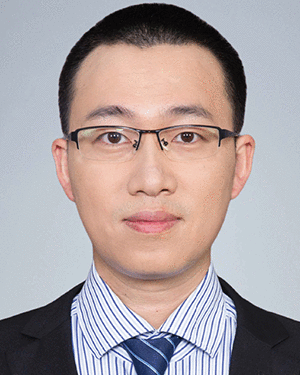Abstract:
Recently, data-driven industrial monitoring systems have been rapidly developed and significantly improved the performance on industrial monitoring tasks. However, the wi...Show MoreMetadata
Abstract:
Recently, data-driven industrial monitoring systems have been rapidly developed and significantly improved the performance on industrial monitoring tasks. However, the widely deployed data-driven models expose industrial data to more unsecured links, which significantly increase the safety risk of safe-critical industrial systems. The research about adversarial attacks has shown that the potential attackers can utilize tiny crafted perturbations on the input data to mislead the machine learning models’ output. In this article, a novel cross-domain data protection scheme named “Data Guardian” is proposed to authenticate and correct industrial data under potential attacks on data-driven monitoring systems. “Data Guardian” embeds designed redundancy information into the data least significant bits, based on q-ary low-density parity-check (LDPC) codes over the Galois field (finite field). The data are encoded at the secured industrial sites and then decoded before being input into the monitoring systems, in which the security risk is usually higher. The decoding capability of q-ary LDPC codes is improved by the data statistical characteristics, with a new proposed prior estimation method. In the experiments, “Data Guardian” is tested under the attacks to the fault diagnosis models on the Tennessee Eastman process and rolling element bearing from Case Western Reserve University. The results show that “Data Guardian” can efficiently reduce the success rate of adversarial attacks, especially when the attack variable ratio is small.
Published in: IEEE Transactions on Industrial Informatics ( Volume: 18, Issue: 4, April 2022)
Funding Agency:

The authors are with the State Key Laboratory of Industrial Control Technology, College of Control Science and Engineering, Zhejiang University, Hangzhou, China
Peng Cheng Laboratory, Shenzhen, China
Yue Zhuo received the B.Eng. degree in automation and electrical engineering from the College of Information Engineering, Zhejiang University of Technology, Hangzhou, China, in 2018. He is currently working toward the Ph.D. degree in control science and engineering with the State Key Laboratory of Industrial Control Technology, College of Control Science and Engineering, Zhejiang University, Hangzhou.
His research interest...Show More
Yue Zhuo received the B.Eng. degree in automation and electrical engineering from the College of Information Engineering, Zhejiang University of Technology, Hangzhou, China, in 2018. He is currently working toward the Ph.D. degree in control science and engineering with the State Key Laboratory of Industrial Control Technology, College of Control Science and Engineering, Zhejiang University, Hangzhou.
His research interest...View more

The authors are with the State Key Laboratory of Industrial Control Technology, College of Control Science and Engineering, Zhejiang University, Hangzhou, China
Peng Cheng Laboratory, Shenzhen, China
Zhiqiang Ge (Senior Member, IEEE) received the B.Eng. and Ph.D. degrees in automation from the Department of Control Science and Engineering, Zhejiang University, Hangzhou, China, in 2004 and 2009, respectively.
From July 2010 to December 2011, he was a Research Associate with the Department of Chemical and Biomolecular Engineering, Hong Kong University of Science Technology, Hong Kong. From January 2013 to May 2013, he wa...Show More
Zhiqiang Ge (Senior Member, IEEE) received the B.Eng. and Ph.D. degrees in automation from the Department of Control Science and Engineering, Zhejiang University, Hangzhou, China, in 2004 and 2009, respectively.
From July 2010 to December 2011, he was a Research Associate with the Department of Chemical and Biomolecular Engineering, Hong Kong University of Science Technology, Hong Kong. From January 2013 to May 2013, he wa...View more

The authors are with the State Key Laboratory of Industrial Control Technology, College of Control Science and Engineering, Zhejiang University, Hangzhou, China
Peng Cheng Laboratory, Shenzhen, China
Yue Zhuo received the B.Eng. degree in automation and electrical engineering from the College of Information Engineering, Zhejiang University of Technology, Hangzhou, China, in 2018. He is currently working toward the Ph.D. degree in control science and engineering with the State Key Laboratory of Industrial Control Technology, College of Control Science and Engineering, Zhejiang University, Hangzhou.
His research interests include intelligence industrial systems security, data-driven industrial monitoring systems, and industrial data augmentation.
Yue Zhuo received the B.Eng. degree in automation and electrical engineering from the College of Information Engineering, Zhejiang University of Technology, Hangzhou, China, in 2018. He is currently working toward the Ph.D. degree in control science and engineering with the State Key Laboratory of Industrial Control Technology, College of Control Science and Engineering, Zhejiang University, Hangzhou.
His research interests include intelligence industrial systems security, data-driven industrial monitoring systems, and industrial data augmentation.View more

The authors are with the State Key Laboratory of Industrial Control Technology, College of Control Science and Engineering, Zhejiang University, Hangzhou, China
Peng Cheng Laboratory, Shenzhen, China
Zhiqiang Ge (Senior Member, IEEE) received the B.Eng. and Ph.D. degrees in automation from the Department of Control Science and Engineering, Zhejiang University, Hangzhou, China, in 2004 and 2009, respectively.
From July 2010 to December 2011, he was a Research Associate with the Department of Chemical and Biomolecular Engineering, Hong Kong University of Science Technology, Hong Kong. From January 2013 to May 2013, he was a Visiting Professor with the Department of Chemical and Materials Engineering, University of Alberta, Edmonton, AB, Canada. He is currently a Full Professor with the College of Control Science and Engineering, Zhejiang University. His research interests include industrial big data, process monitoring, soft sensor, data-driven modeling, machine intelligence, and knowledge automation.
Dr. Ge was an Alexander von Humboldt Research Fellow with the University of Duisburg-Essen, Duisburg, Germany, from November 2014 to January 2017, and also a Japan Society for the Promotion of Science invitation Fellow with Kyoto University, Kyoto, Japan, from June 2018 to August 2018.
Zhiqiang Ge (Senior Member, IEEE) received the B.Eng. and Ph.D. degrees in automation from the Department of Control Science and Engineering, Zhejiang University, Hangzhou, China, in 2004 and 2009, respectively.
From July 2010 to December 2011, he was a Research Associate with the Department of Chemical and Biomolecular Engineering, Hong Kong University of Science Technology, Hong Kong. From January 2013 to May 2013, he was a Visiting Professor with the Department of Chemical and Materials Engineering, University of Alberta, Edmonton, AB, Canada. He is currently a Full Professor with the College of Control Science and Engineering, Zhejiang University. His research interests include industrial big data, process monitoring, soft sensor, data-driven modeling, machine intelligence, and knowledge automation.
Dr. Ge was an Alexander von Humboldt Research Fellow with the University of Duisburg-Essen, Duisburg, Germany, from November 2014 to January 2017, and also a Japan Society for the Promotion of Science invitation Fellow with Kyoto University, Kyoto, Japan, from June 2018 to August 2018.View more


